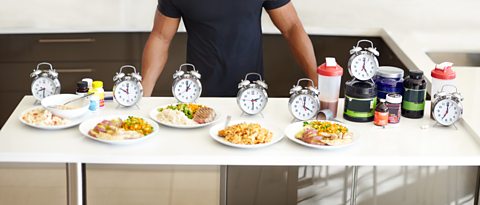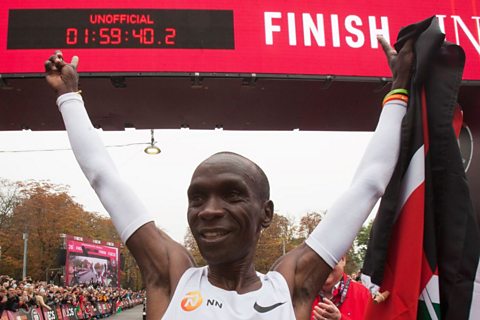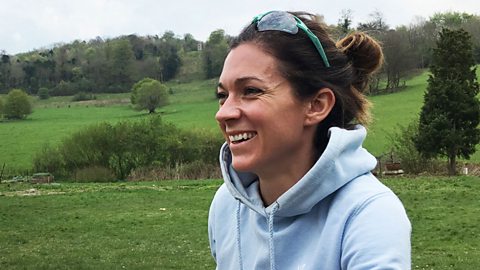High-protein or high-carb: Will either boost your fitness?

Whether youтАЩre an occasional gym goer, exercise enthusiast or professional athlete, youтАЩve probably received tips on how changing your diet could boost your fitness. You might be tempted by high-protein products to build strength, or to reduce your carb intake in order to improve performance. Or the opposite, you might consider тАШcarb loadingтАЩ before a sporting event and consuming further carbs during the event in the hope theyтАЩll fuel and power you through.
Advice for diets aimed at supporting exercise often falls into one of these two camps:
- Low carb + fat + protein тАУ to help build and repair muscle while burning fat
- Carb-led + low fat тАУ to give you the energy to perform well without taking on extra fat.
But is one really better than the other?
How much protein and carbohydrate should we consume?

тАЬDietary guidelines recommend around (one-third of the food you eat) should come from carbohydrates тАУ these are found in starchy foods, such as bread, pasta, rice, couscous, potatoes, breakfast cereals, oats and other grains like rye and barley. Wholegrain or higher-fibre varieties should be chosen where possibleтАЭ, says nutrition scientist and British Nutrition Foundation spokesperson, Sarah Coe.
As for protein? тАЬAdults need around 0.75g protein per kilogram of body weight per day. If you are regularly active, you may need slightly more protein to help with muscle growth and repairтАЭ, says Coe.
However, as youтАЩd imagine, things start to change when youтАЩre a sports professional. тАЬThe exact amount of carbohydrate or protein an athlete needs varies individually, depending on their sport, training programme, and intensity and duration of exercise sessions. An athlete training for three to five hours per week is recommended to have 4тАУ5g carbohydrate per kilogram of body weight per day, whereas an athlete who trains much more intensively for at least two hours a day will need double this amount.
тАЬThe protein requirements of strength and endurance athletes are higher than those of the general population. Strength athletes typically require 1.2тАУ1.7g protein per kilogram of body weight per day, whereas endurance athletes need 1.2тАУ1.4g protein per kilogram of body weight per dayтАЭ, she says. This is because protein contains amino acids, which are the building blocks for muscle growth.
Professional athletes versus the rest of us

The recommended dietary differences between athletes and well, everyone else, is something Dr Michael Newell, Sport and exercise nutrition lecturer at University of Westminster, discusses.
тАЬTheyтАЩre the physiological weirdos of this worldтАЭ, says the School of Life Sciences professor. He isnтАЩt being critical of the worldтАЩs leading endurance athletes, in fact the opposite. HeтАЩs explaining how, when it comes to elite performers and their diet, often their biological make-up is different from that of the rest of us.
тАЬEndurance athletes have been selected for the sport because theyтАЩre very good at it and also because they are exceptionally good at consuming high rates of carbohydrates тАУ those two things need to go together. You donтАЩt get an elite marathon runner who canтАЩt consume carbohydrates at a high rateтАЭ, he says.
Dr Michael highlights record-breaking marathon runner Eliud Kipchoge as an example of a personтАЩs physiology being different from the grand majority of others. тАЬHis aim was to consume around 90g of carbohydrate per hour (during a marathon). Most people would be violently sick if they tried to do that.тАЭ
As Coe says, prescribed amounts of protein and carbohydrate can differ depending on the personтАЩs sport and weight. This inevitably means diets differ, even within the .
While professional athletes have nutritional advice prescribed to them and their physiological make-up examined in great detail, this probably isnтАЩt something the average gym-goer will have access to. Which can lead to problemsтАж
Choosing the right diet

Alexandra Cook is a competitive endurance runner and sports dietitian. Rather than suggesting clients take on extreme diets that either focus on carbs or protein, she prefers a more balanced approach. тАЬThereтАЩs a huge amount of misinformation out there. WeтАЩre in a world where there are a lot of influencers and people tend to look at what other people are doing and think, тАШif itтАЩs worked for you, itтАЩs going to work for meтАЩтАЭ, she says.
Cook finds herself having to battle misinformation about certain diets тАУ especially ones that are restrictive. тАЬSome athletes тАУ especially in the ultra-endurance world тАУ do tend to go for this low-carb approach and it works for them, which is great. But then they say тАШwhen IтАЩm up and running, IтАЩve never felt fitterтАЩ. That doesnтАЩt mean itтАЩs going to work for everybody else. I know for sure if I cut out carbohydrates, I probably wouldnтАЩt be able to get out of bed, let alone run a 50-mile race.тАЭ
So CookтАЩs approach is to instead tweak the guidelines to the individual sheтАЩs working with, тАЬso that it accounts for their sport or for personal reasons such as different tastes and requirements.тАЭ
This means no extremes of either protein or carbs.
This balanced approach is something Dr Newell agrees with. тАЬIf you want to be able to train consistently, it would be ridiculous to exclude any macro-nutrient, in my opinion. To put it simply, you need carbohydrates to sustain longer, high-intensity training, and you need protein to help recover from that and to replace amino acids youтАЩve lost. On top of that, you need a bit of fat in order to ensure you get an adequate number of calories in your diet.
тАЬThis isnтАЩt particularly exciting or novel, itтАЩs the advice. ThereтАЩs a tendency for the newest-best-thing to be the diet you should be doing. But actually, thereтАЩs usually limited evidence behind whether they are attainable and have the results people think they doтАЭ, he concludes.
Do we really need lots of protein?

тАЬProtein is a big sports nutrition product at the moment, so I encourage people to look at whoтАЩs pushing it and why. Of course, protein is a very important nutrient, itтАЩs vital for helping us perform and get the best out of ourselvesтАЭ, says Cook.
тАЬIt also helps us repair and recover. But currently people are being led to think they need an extortionate amount. The reality is, if we take on more protein than our body needs, weтАЩll just excrete it out.
The sports dietitian continues: тАЬRecently I kept a food diary, just out of interest, to see how much I was consuming. Without thinking, I was eating enough protein. This is simply because most people who train regularly eat a greater volume of food overall, so most reach their protein requirements and more without even trying.
тАЬIf you have a portion of protein at each meal, and if youтАЩre doing slightly higher training loads you get protein from snacks like nuts, peanut butter and milk, youтАЩll easily meet your protein requirements.тАЭ
Coe also emphasises this point: тАЬItтАЩs a myth that eating lots of extra protein equals bigger muscles. While protein supplements are popular among some gym-goers for muscle building, they are generally unnecessary as most active people can easily get enough protein from a healthy, varied diet, including high-quality, lean protein foods.тАЭ
What about if youтАЩre following a vegan diet?

Anyone who watched the documentary The Game Changers will have seen vegan athletes and experts talking about how following a vegan diet and performing to a high standard go hand in hand. They advocate taking on both plant-based .
While the documentary has faced , it does highlight that thereтАЩs a seemingly growing community of professional . How does this work in practice?
Tom Huelin is the fitness coach for League TwoтАЩs Forest Green Rovers тАУ the тАШworldтАЩs first 100 percentтАЩ. As part of his responsibilities, he gives nutrition advice to the team.
While the players are in control of their own meals at home, at work they follow a vegan diet and there are тАЬa lot of vegetarians and a couple of vegansтАЭ in the squad.
However, being a vegan club doesnтАЩt make the nutritional requirements different from those of any other team. Tom explains that both protein and carbs in particular are a big focus for the footballersтАЩ requirements. And the amounts prescribed depend on the football schedule.
тАЬFootballтАЩs a results business, and the most important time to be nutritionally prepared is on match day. So you just start with that and work backwards into the training days to make sure youтАЩre at your optimum on match dayтАЭ, Huelin says, before explaining what each day needs to include.
The basics are: on the days theyтАЩre going to be working harder they consume more carbs, and they make sure after intensive sessions they receive a top-up of protein to help with muscular fatigue. To help encourage the team to receive the correct nutrition when theyтАЩre off the clock, they have access to an online resource which includes recipes for vegan meals.
тАЬThe vegan element of it is key. We can attribute lots of positive things to it тАУ physically and in terms of the levels of recovery. Players are feeling less fatigued. These are anecdotal of course, so while it might be they get these effects from following (at least) a semi-plan-based diet, we donтАЩt know for sureтАЭ, the fitness coach says.
Is it a challenge to get all the right nutrients into the players on a vegan diet? тАЬNo, and thatтАЩs because there are now good vegan plant protein supplements. It wasnтАЩt always the case. When I first joined the club, I found it really tricky to get something that had a sufficient amount тАУ and the right type тАУ of protein. In the last four years though, as veganism has become fashionable, more and more sports nutrition brands are developing vegan protein products. And we use things like soy milk, which is really high in protein.тАЭ
So will one diet improve your fitness levels?
Kind of. While thereтАЩs research to support the view that could help athletes, thereтАЩs also plenty pointing to the opposite, that low-carb diets will .Does that mean carbs win the race? TheyтАЩll definitely give you the fuel you need to compete, but you do need protein with comprehensive amino acids to repair and help build your lean muscle mass.
The experts we spoke to all advocate that itтАЩs preferable to not cut any macro-nutrients out of your diet and to follow healthy eating guidelines тАУ adapting them depending on your individual demands rather than re-writing them entirely. So, combined protein, carbohydrate and even fat should all help you cross that finish line тАУ but unless youтАЩre an elite athlete, youтАЩll almost certainly get enough of these from a healthy diet.